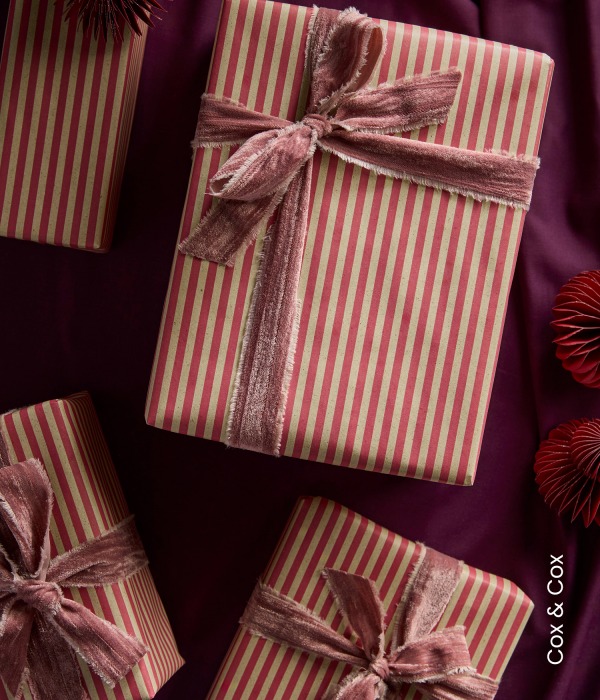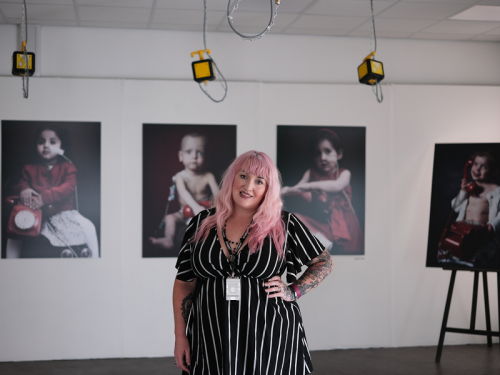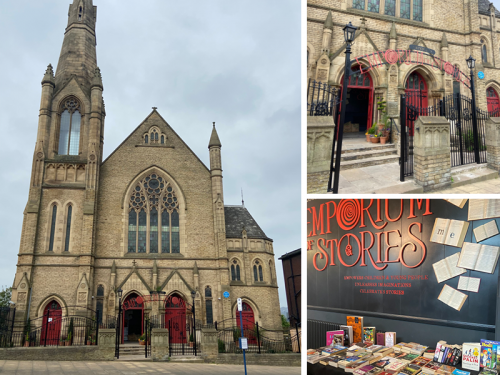A Newcastle Breakdancer Tells us About the New Olympic Sport
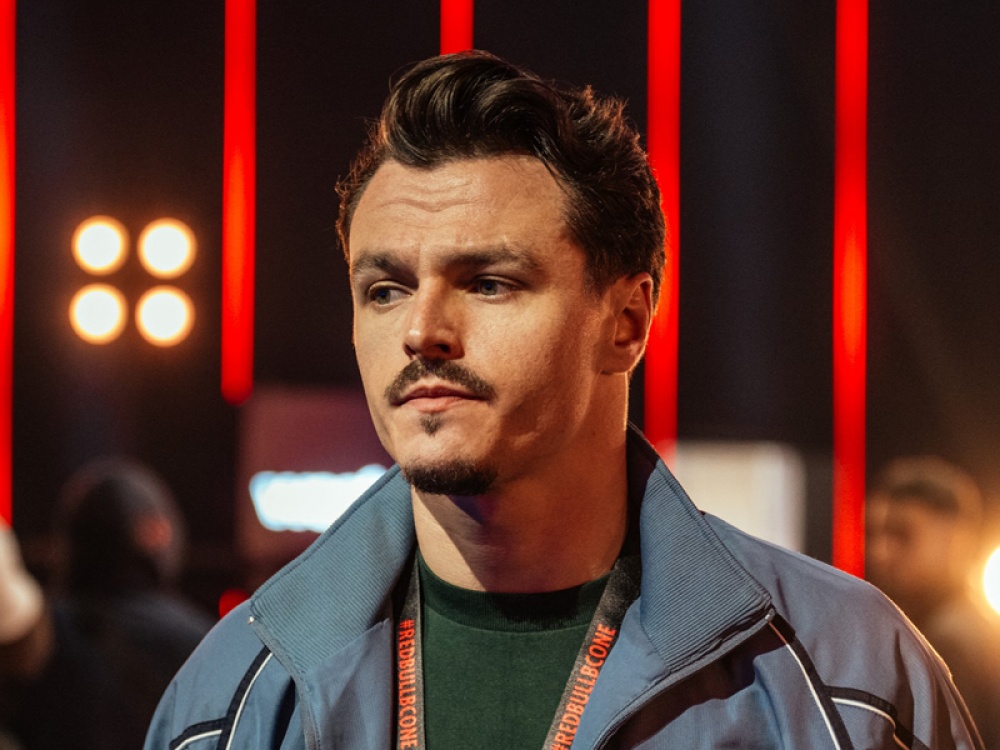
This year's Summer Olympics will introduce the sport of breaking (also known as b-boying or breakdancing) for the first time
Can you describe breaking to us, and what it means to you?
There’s a million ways to describe it. Breaking is an art and movement form that is part of hip hop culture. It originated from New York in the ‘70s. It’s a youth and a street culture. It’s an amalgamation of inspiration and resources that existed in New York at that time. Hip hop actually consists of four elements: MC-ing, DJ-ing, graffiti and breaking (which is its dance form). For me, what breaking represents is the combination of one of the most physically extreme things you can do on the planet with one of the most physically creative things you can do. It’s a juxtaposition between the physical demand of the art form and how individual, original and creative you have to be in an art form that millions of people take part in across the world. It’s allows people to express themselves in many different ways, whether that’s through battling or to stay fit or to be part of the culture.
Tell us about yourself and your background.
I started dancing when I was 15, and quite quickly joined Bad Taste Cru [a professional b-boy dance company based in the North East] which I still represent now. When I met them they were the UK champions and they were a little bit older than me so they were starting to move into performing and theatre, so I was exposed to performing professionally very early on. I did my A Level in contemporary dance and realised I wanted more of a formal education in dance. I auditioned and went to the Northern School of Contemporary Dance and graduated with an award for outstanding performance. While I was there I was able to maintain some freelance gigs with Bad Taste Cru so I could keep performing while I was training. Ever since then, I’ve been a freelance dance artist. As a professional, I have a balance between my b-boy side and my contemporary side. In terms of my b-boy work, I battle, tour, perform, teach and judge, and with my contemporary side I work in theatre and freelance for different companies across the UK and internationally.
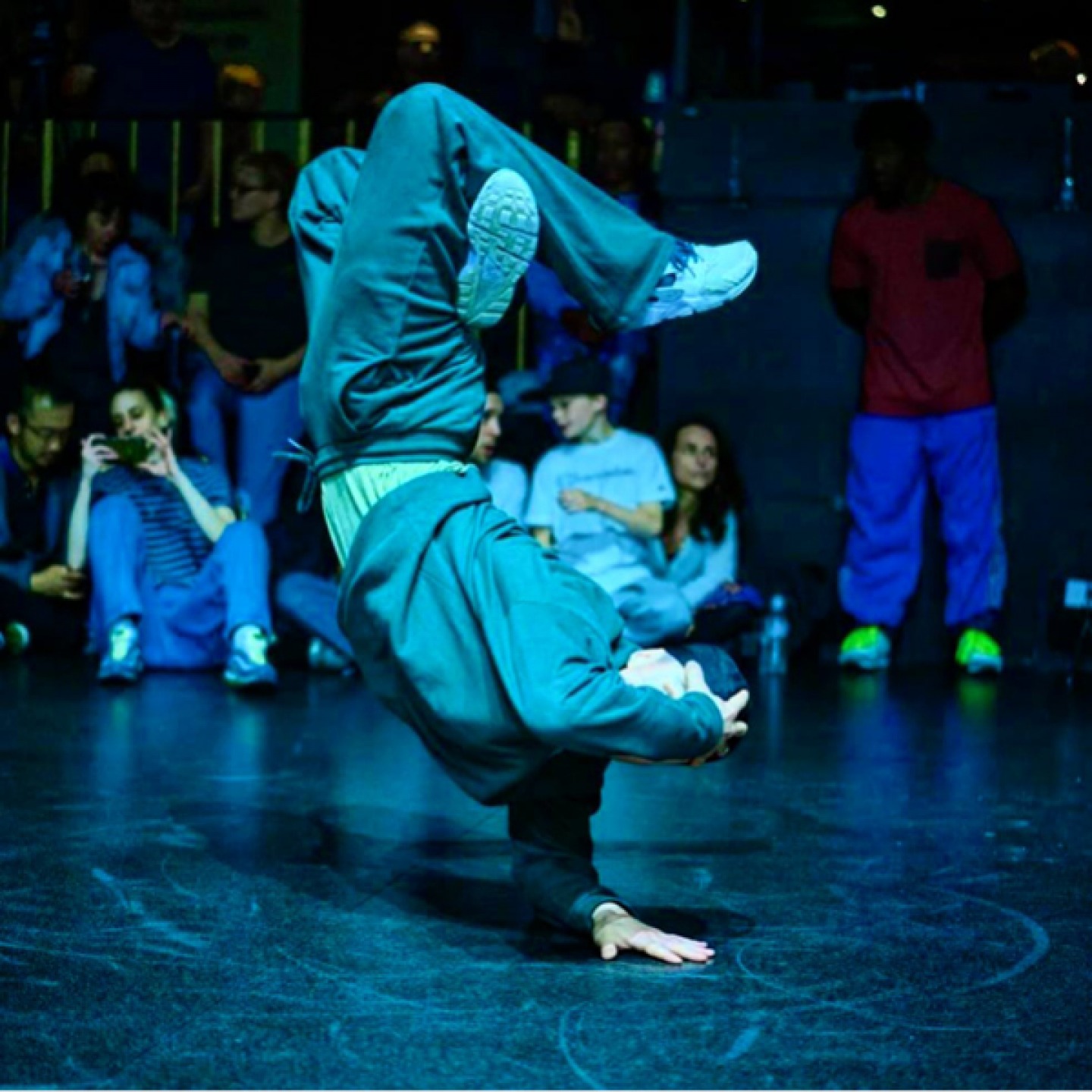
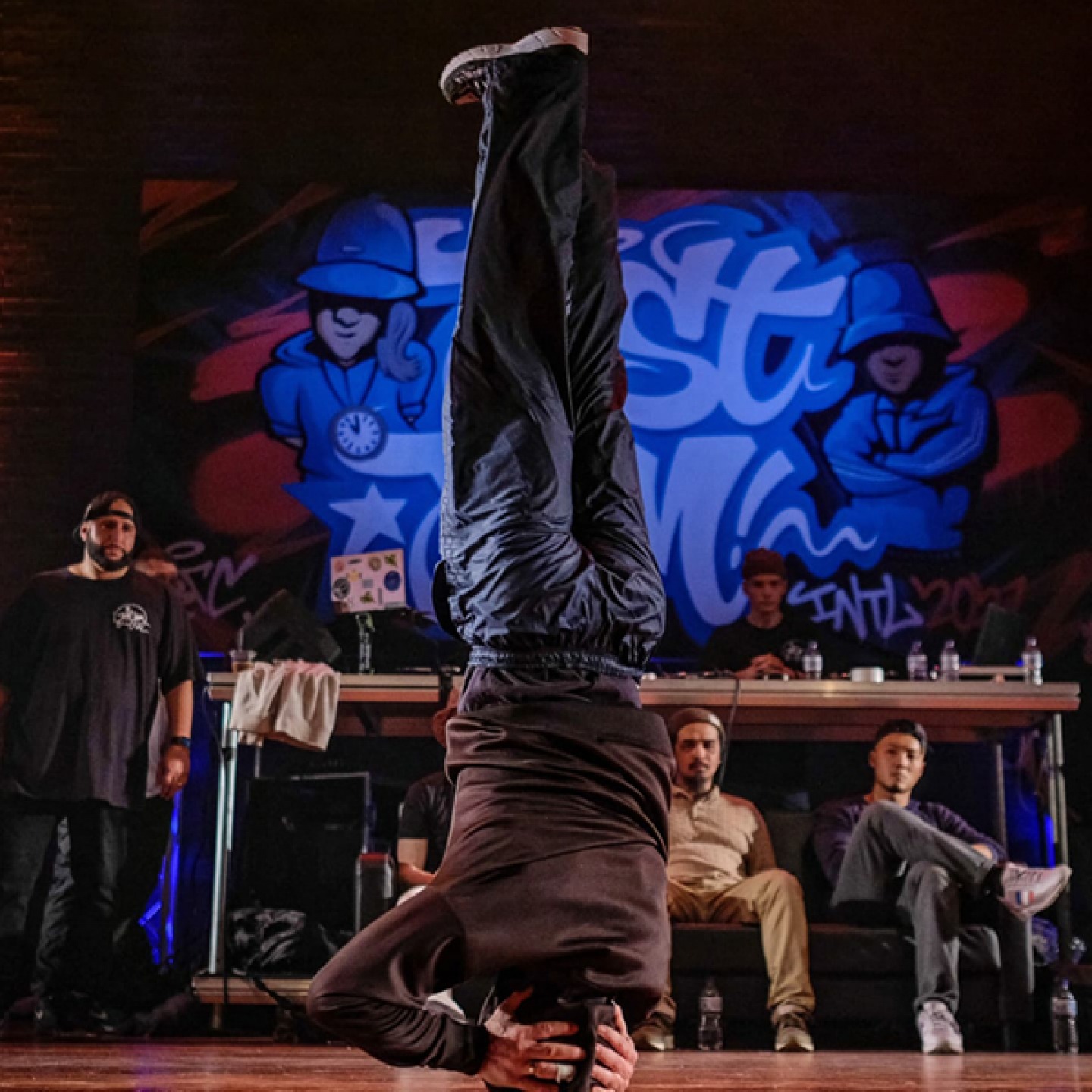
Why did you want to get into dance in the first place?
I was quite shy and nerdy at school. I wasn’t a very cool person – I’m probably still not to be honest with you! Me and my friend watched a film and we thought maybe we’d have more confidence talking to girls if we could dance, so we Googled dance in Newcastle and Dance City popped up. That’s where I started my dance journey. I went to a street dance class and on my first lesson my friend didn’t turn up! I walked into the room and there was 15 girls and I was the only guy. I ripped my jeans, it was a train wreck, but I really enjoyed it. I was quickly picking up the breaking moves and a friend of mine, who’s also in Bad Taste Cru now, suggested I should go to breaking on Thursday nights. As soon as I started that, I realised that’s what I’d do forever.
Talk me through some of your career highlights so far.
I’ve been dancing for 17 years. I’ve been a professional for about 13 of those. Some of my career highlights include joining and representing Bad Taste Cru – that’s always been one of the most inspiring things for me. They still continue to inspire me now. Being able to get into and graduate from the Northern School of Contemporary Dance was also a big achievement for me. It’s a very prestigious school. More recently, I’ve had some amazing opportunities with Breaking GB [a non-profit organisation supporting elite breaking talent]. I’ve been supporting one of the athletes with informal coaching and training which has allowed me to travel to Hong Kong, Korea and Shanghai, which has been amazing. From the performing side, I’ve been able to tour internationally and have been to Asia and New York, and I work with Gary Clarke Company – one of the leading choreographers in the UK. I really try to stay present in everything I’m doing. It sounds a little bit corny but in every opportunity I get, there is a career highlight and I try to focus on what I’m doing at that time.
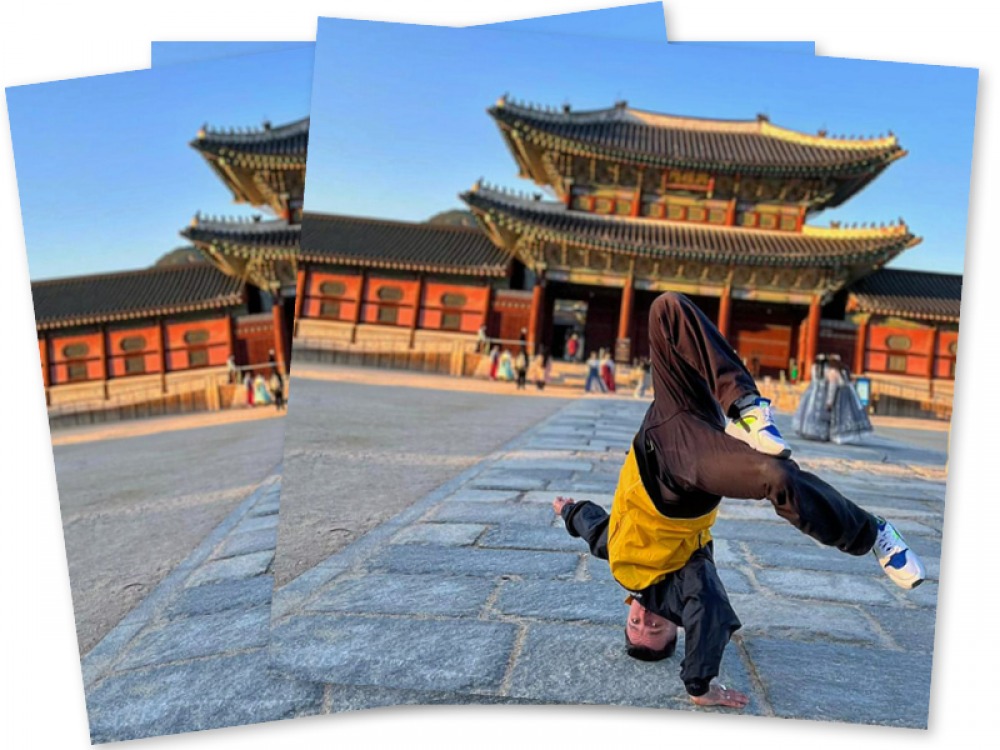
How much opportunity is there to get into breaking in the North East?
I think there’s less opportunity than there was when I was a kid, which is a shame, but I’m trying to work on changing that. When I was younger there were more active crews. There was a more active scene. It wasn’t as advanced as it is now – we have some amazing athletes and some of them are sponsored by multi-million dollar brands – but there were more people doing it back then. Some of it is a generational gap, but there are less opportunities. I’m only one person. I can only teach a certain amount of people. It’s definitely not as accessible as it used to be, but I’m hoping the Olympics might change that.
What does it mean to you that the 2024 Summer Olympics will introduce the sport of breaking for the first time?
Breaking for the past five to 10 years has become more and more popular and we’ve had events that have been our cultural Olympics. The amazing thing about breaking now being part of the Olympics is that it’s going to expose people to an art form that they’ve never seen before (and they’re going to be absolutely amazed). The second thing is that it’s going to challenge the stigma around breaking. A lot of people say things like ‘that’s not a sport and it shouldn’t be in the Olympics’ but if you look at the things Olympic gymnasts or 100-metre sprinters do, anything that requires such a level of physical exertion, breakers are doing that too. But also what’s missing from the Olympics is the art form that comes with breaking – every single breaker on the stage is an artist as well as an athlete. A whole generation of people are going to see that and I think they’re going to be blown away.
What can we expect from you at NOVUM Festival in Newcastle this summer?
I’m creating a platform for other people. NOVUM approached me last year as they wanted to work with someone who could inject dance into the festival. I’m very passionate so that if I’m going to work to bring dance into communities and create a platform for dance, it’ll have to be done in a way that’s tactile and can really resonate with people. We’re trialling collaborating together this year in the hope that we can build on it for 2025 and 2026. I am bringing a brand-new, original platform to NOVUM called Triple Threat. It’s a three vs three breaking battle and an under 18s one vs one.
Between now and 11th August when the event takes place, I’m delivering free workshops across the North East to a number of different charities and dance organisations that I work with to try and connect as many young people to the dance as possible who might otherwise not be able to attend the event. Within two weeks I’ve already worked with 150 young people so I’m hoping to get that up to 400 before the event actually starts. The event itself is going to consist of up to 50 three vs three crews and there’ll be 50 spaces for under 18 one vs ones. It’ll be a full-day event with a discussion beforehand, called Breaking the Ice, where we’re trying to break the stigma around breaking so we can educate the audience on what they’re about to see.
Then we have a full-day battle event where people can watch some of the most amazing dancers. We’ve got three incredible judges, one of the best DJs in the UK, and it’ll be in the Banqueting Hall at the Civic Centre which is a beautiful venue.
Then we can sit down as a team and look at legacy planning and see how we can make this event as successful as possible and create something really unique to Newcastle that makes people want to visit our city and break here, because we do have a rich history of breaking. Triple Threat is about continuing that legacy. I would encourage anyone, if they’ve seen breaking or they’re interested, to reach out to others in their community and give it a try.
Find out more about Rob and breaking get in touch at robandersondance.co.uk.

